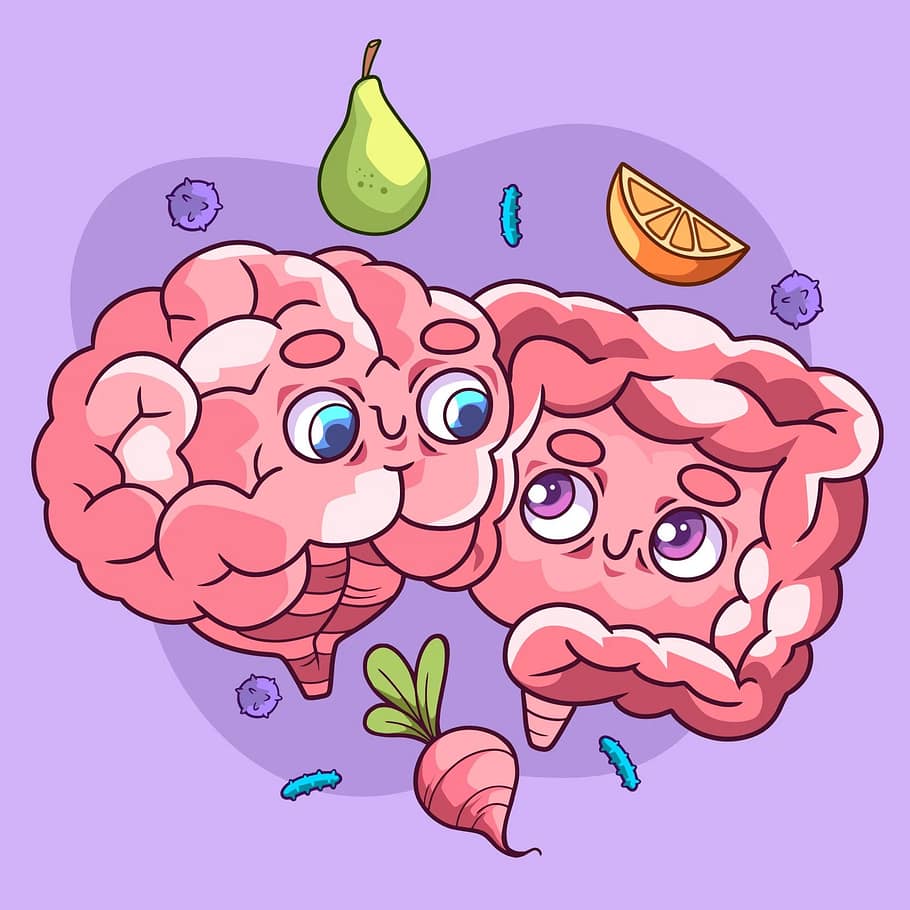In today’s fast-paced world, we often hear about the importance of maintaining a balanced diet for our physical health. However, what is less emphasized, but equally vital, is the profound connection between our diet and mental well-being. The diet and mental health are intrinsically linked. The food we consume has a significant impact on our brain’s functioning and emotional state. In this article, we’ll explore the intricate relationship between nutrition and mental health, providing practical tips and insights on how to maintain a healthy diet to support better mental health.
- Table Of Contents
Understanding the Mind-Body Connection

To comprehend the link between diet and mental health, it’s essential to recognize the intricate relationship between our bodies and minds. The brain, like any other organ, relies on nutrients for optimal functioning. Just as a car needs the right fuel to run smoothly, our brains require the proper nutrients to operate effectively.
Nutrients for a Healthy Mind
- Omega-3 Fatty Acids for Diet and Mental Health: Transitioning into our discussion, omega-3 fatty acids are a fantastic starting point. These essential fats are found in fatty fish, flaxseeds, and walnuts, making them vital components of a mental health-focused diet. They play a crucial role in maintaining brain health and have been associated with lower rates of depression.
- Antioxidants and Diet and Mental Health: Antioxidants, like vitamins C and E, protect the brain from oxidative stress, contributing to the diet-mental health connection. Incorporating fruits, vegetables, and nuts into your diet can help provide a steady supply of antioxidants to support mental clarity.
- Protein and Diet-mental Health Relationship: Proteins supply amino acids, which are the building blocks of neurotransmitters. These neurotransmitters, such as serotonin and dopamine, play a significant role in regulating mood. Lean meats, dairy, and plant-based protein sources like tofu and legumes are excellent choices.
- Complex Carbohydrates and Mental Health through Diet: Whole grains, such as brown rice and quinoa, provide a steady release of energy, which is beneficial to both your physical and mental health. They help stabilize blood sugar levels, preventing mood swings and irritability, further demonstrating the significance of diet in mental well-being.
The Gut-Brain Connection

Now, let’s delve into the fascinating world of the gut-brain connection. Emerging research suggests that the health of our gut microbiome can influence our mental well-being, underlining the relationship.
- Fermented Foods and Diet-Mental Health Balance: Incorporating probiotic-rich foods like yogurt, kefir, and kimchi can help maintain a healthy gut microbiome, potentially leading to improved mood and reduced symptoms of anxiety and depression, emphasizing the role of diet in mental health.
- Prebiotic Foods and the Gut-Brain Connection: Prebiotics, found in foods like garlic, onions, and asparagus, nourish the beneficial bacteria in your gut, promoting a harmonious gut-brain relationship and reinforcing the connection between diet and mental health.
The Culprits: Sugar and Processed Foods in Diet and Mental Health

Now, let’s address the not-so-friendly culprits in our diet that can wreak havoc on mental health: sugar and processed foods. These items are often high in refined sugars and unhealthy fats, leading to blood sugar spikes and crashes that can affect our mood and energy levels.
- Sugar’s Roller Coaster Effect on Diet and Mental Health: Refined sugar can lead to a rapid spike in blood sugar levels, followed by a crash. This roller coaster effect can lead to irritability, mood swings, and increased feelings of anxiety, highlighting the impact of diet on mental health.
- Processed Foods and Trans Fats: Diet’s Influence on Mental Health: Processed foods often contain trans fats, which have beeen associated with an increased risk of depression. Opt for whole, unprocessed foods whenever possible to maintain a healthy diets for better mental health.
Mindful Eating for Mental Health
Now that we’ve explored the science behind the connection, let’s discuss how to implement these insights into our daily lives through mindful eating.
- Savor Every Bite: Practice mindfulness while eating. Pay attention to the flavors, textures, and aromas of your food. Eating slowly and savoring each bite can enhance the pleasure of your meal.
- Listen to Your Body: Tune in to your body’s hunger and fullness cues. Eat when you’re hungry, and stop when you’re satisfied.
- Meal Planning: Plan balanced meals ahead of time to ensure you’re getting a variety of nutrients. This can help you avoid reaching for unhealthy snacks or fast food when you’re in a hurry.
- Hydration: Stay hydrated by drinking enough water throughout the day. Dehydration can negatively affect mood and cognitive function.
The Mediterranean Diet: A Blueprint for Mental Well-Being

The Mediterranean diet is often touted as one of the healthiest diets for both physical and mental well-being. This diet emphasizes whole grains, fruits, vegetables, lean protein, and healthy fats like olive oil.
- Fruits and Vegetables: The abundance of fruits and vegetables in the Mediterranean diet provides essential vitamins, minerals, and antioxidants to support brain health.
- Olive Oil: Rich in monounsaturated fats, olive oil has been associated with a reduced risk of depression.
- Fatty Fish: Regular consumption of fatty fish like salmon and sardines provides omega-3 fatty acids, which can enhance mood and cognitive function.
- Nuts and Seeds: Almonds, walnuts, and flaxseeds are excellent sources of nutrients that support brain health.
Caffeine and Alcohol: Moderation is Key
Caffeine and alcohol are commonly consumed beverages that can affect mental health.
- Caffeine: While moderate caffeine intake can provide a temporary energy boost and improved alertness, excessive caffeine consumption can lead to increased anxiety and disrupted sleep. Be mindful of your caffeine intake.
- Alcohol: Excessive alcohol consumption can lead to depressive symptoms and impair judgment. If you choose to drink alcohol, do so in moderation.
Conclusion: Nourishing Your Mind through Diet
In conclusion, the connection between diet and mental health is undeniable. What we eat has a profound impact on our mood, cognitive function, and overall well-being. By prioritizing a meal rich in essential nutrients, embracing mindful eating habits, and considering the Mediterranean diet as a blueprint, you can take significant steps towards better mental health through diet. Remember, small changes in your diet can lead to substantial improvements in your mental well-being. So, start today by making more mindful and nutritious choices in your diet, and your brain will thank you.
As we conclude our journey through the intricate connection, we invite you to share your thoughts and experiences. Have you noticed changes in your mood or mental well-being after making dietary adjustments? Your insights and stories can inspire and guide others on their path to better mental health through diet. If you’re interested in reading more about health and fitness, please check out our dedicated Health and Fitness Blog category for a wealth of additional resources and insights to support your wellness journey.
-
“28 Years Later” Was Actually Filmed Using iPhones – Danny Boyle Explains Why
-
“A Final Season So Horrific I Can’t Even Re-Watch It” – 16 TV Shows That Gave A Massive Middle Finger To The Fans
-
“A Huge Moment For Latin American Representation”: People Are Praising “SNL” And Marcello Hernández For This “Sábado Gigante” Sketch
-
“A Low Self-Esteem, Big Ego Kind Of Man” – Josh O’Connor Reflects On “The Mastermind”
-
“A Minecraft Movie” Cast Played “Who’s Who,” And Hilariously Called Each Other Out
-
“A New Banger!”: Seth Meyers Spotted A Bonkers New Example Of Trump’s Cognitive Decline
-
“A New Instant Sicko Classic”: People Can’t Stop Talking About How Wild And Shocking “The Substance” Is
-
“A Simple Favor” Director Paul Feig Defended Blake Lively From Online Trolls
-
“Abbott Elementary” Is Back For Season 5, So Here’s Everything You Need To Know Before Diving In









Leave a Reply